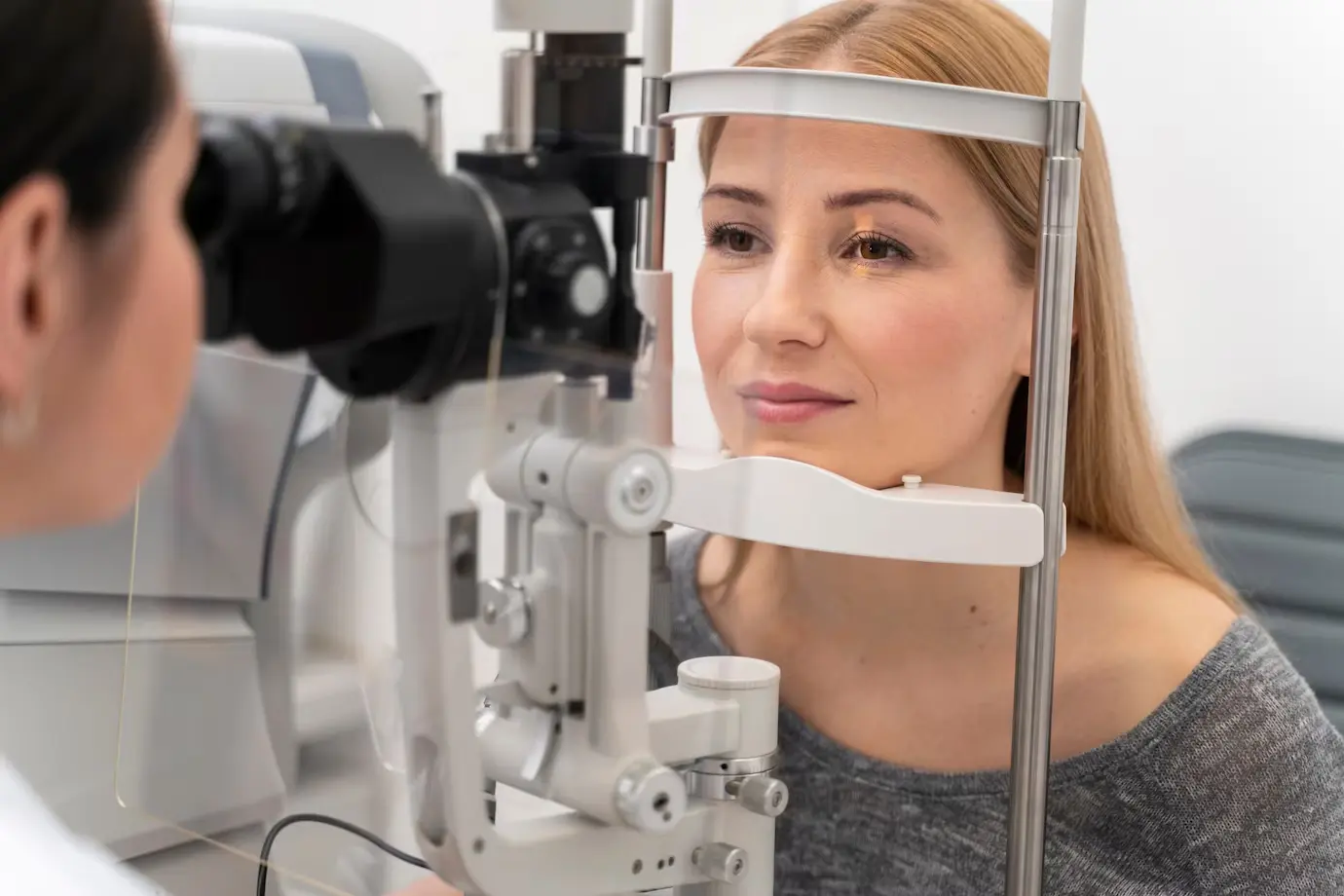If you’ve got perfect vision — or if you wear eyeglasses or contact lenses to correct your vision — you may think you’re already doing everything it takes to preserve your eyesight and safeguard your ocular health.
But establishing a few more eye-friendly habits today can go a long way in protecting your vision and eye health tomorrow, especially as you get older and your chances of developing common sight-robbing eye diseases like glaucoma, cataracts, and age-related macular degeneration (AMD) increases.
Luckily, there are simple, everyday steps you can take to reduce your risk of eye problems and vision loss now and in the future. Here, Dr. Markiel Yakubov and our skilled team at Elite Eye Care in New York City offer seven eye-healthy habits everyone should practice.
Eat a nutrient-rich diet
The quality of your diet impacts your entire body, including your eyes. A heart-healthy diet that’s rich in whole foods (fruits and veggies, whole grains, lean proteins, healthy fats) and low in processed foods (added sugars, saturated fats) supports heart, vessel, and eye health.
Supporting ocular health and good vision also means giving your eyes the specific nutrients they need to maintain optimal function. Stand-out foods in a diet designed to support long-term eye health include:
- Dark leafy greens like kale
- Cold-water fish, including salmon
- Legumes (beans, peas, lentils)
- Oranges and other citrus fruits
Eye-supporting nutrients in these foods include vitamins A, C, and E; omega-3 essential fatty acids, carotenoid antioxidants like lutein and zeaxanthin, and zinc.

Stay physically active
Being physically active every day helps you maintain a healthy weight and a fit, strong body, which reduces your risk of chronic conditions — like high blood pressure, high cholesterol, and type 2 diabetes — that can leave you more vulnerable to developing diabetic eye disease or glaucoma.
Ditch unhealthy habits
Sometimes, forming new, healthy habits means ditching old, unhealthy ones. If you smoke or use tobacco, quitting is one of the best things you can do for your long-term ocular health. Smoking harms the optic nerve and causes gradual eye changes that can lead to vision loss.
Compared to non-smokers, smokers are twice as likely to develop AMD, and up to three times more likely to get cataracts. Quitting today will help you preserve your vision tomorrow.
Wear good sunglasses
Exposing your eyes to the sun’s ultraviolet (UV) light rays can damage the sensitive cells in your retinas, leaving them vulnerable to serious ocular conditions that can lead to long-term and sometimes irreversible vision loss, including macular degeneration, cataracts, and eye cancer.
Fortunately, wearing good sunglasses, or the kind that blocks out at least 99% of all UV light, including both UVA and UVB rays, is a simple way to protect your ocular health and preserve your sight. Be sure to wear sunglasses whenever you spend time outdoors, including on days that are overcast or cloudy.
Prescription sunglasses from Elite Eye Care always provide the highest level of UVA/UVB protection; store-bought sunglasses that are UV-rated should be labeled as such.
Never buy sunglasses that don’t carry a 99% UVA/UVB rating label. Sunglasses lenses that aren’t protective can actually be more damaging than not wearing sunglasses: the shade from the inferior lenses helps dilate your pupils, allowing more UVA/UVB rays to stream into your eyes than would if you were without sunglasses and squinting.
Use protective eyewear
Safety glasses and goggles protect your eyes during home repair and yard work, chemical use, sports play, bicycle and motorcycle riding, and other activities that elevate your risk of sustaining an accidental eye injury. Wearing well-fitting safety glasses or goggles as needed helps you avoid the need for emergency eye care.
Give your eyes a break
Computer vision syndrome, also known as digital eye strain, is a very real phenomena that affects countless people at any given time. It comes from — you guessed it — spending too much time staring at computer, tablet, and/or smartphone screens.
To reduce your chances of developing screen-related eye and vision problems like dry eye, follow the 20/20/20 rule and give your eyes a break: for every 20 minutes of screen time, take a 20-second break and set your gaze at least 20 feet away. Use this time to relax your eyes and blink; most people blink far less often than they should when looking at a screen.
Have regular eye exams
Arguably the most critical eye-friendly habit you can begin today is establishing a preventive eye care routine. All it takes is scheduling your next comprehensive eye exam, and keeping up with regular eye exams as recommended by our team.
Besides checking your visual acuity (distance vision) and testing your visual field (peripheral vision), Dr. Yakubov performs a refraction test to evaluate refractive errors that cause vision problems, measures your eye pressure to check for glaucoma, and conducts a dilated eye exam to get a clear view of the important structures at the back of your eyes.
To learn more or schedule your next comprehensive eye exam at Elite Eye Care, call or click online to book an appointment at your nearest New York City location today — we have one office in Brooklyn, and four offices throughout the Bronx.
